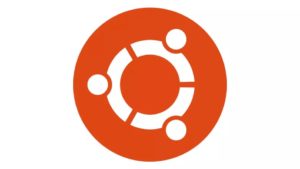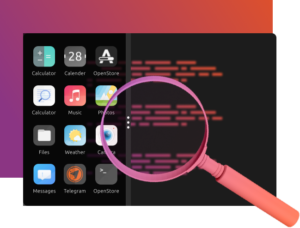Ubun tu is an open-source operating system based on Debian Linux for personal computers, servers, and smartphones.
tu is an open-source operating system based on Debian Linux for personal computers, servers, and smartphones.
Ubuntu Mobile, also known as Ubuntu Touch, is an open-source operating system built specifically for mobile devices.
It was first released in 2013 and offered an alternative to popular mobile operating systems such as Android and iOS. Although it was met with mixed reviews, Ubuntu mobile has continued to evolve and improve over the years.
Ubuntu mobile aims to be a secure, intuitive, and versatile operating system for smartphones. It is designed to allow users to be more productive and efficient when using their mobile devices.
One of the main selling points of Ubuntu mobile is its design. The user interface is sleek and minimalistic, making it easy for users to navigate and find what they need. The operating system is also designed to work well on devices with different screen sizes, from smartphones to tablets.
Fully transparent operating system
Developed as an open source project, Ubuntu Touch contains no hidden nuts and bolts. Your data are kept exactly where you want it to be: on your own device, and nowhere else. Unless you explicitly ask for it
But design isn’t the only thing that sets Ubuntu mobile apart from other mobile operating systems. It also prioritizes privacy and security. Ubuntu mobile features a “Privacy” option in the settings menu, which allows users to control what data apps can access. For example, users can choose to restrict an app’s access to their location or contacts. This makes Ubuntu mobile a popular choice for businesses and organizations that require robust security measures for their mobile devices.
Another unique feature of Ubuntu mobile is its convergence capabilities.
It is designed to be used on both mobile devices and desktop computers. With a compatible device, users can connect their phone to a monitor and use it as a full-fledged computer. This is particularly useful for users who travel frequently and need a lightweight device that is versatile enough to handle different tasks.
Ubuntu mobile also boasts a strong community of developers and users. Because it is open-source, anyone can contribute code or ideas to the project. The community regularly releases updates and new features, so users can expect a constantly improving experience.
Ubuntu mobile also supports a wide range of applications, including many popular third-party apps from the Ubuntu Software Center. Users can download and install apps directly from the store, and developers can create and publish their own apps for Ubuntu mobile.
Unfortunately, Ubuntu mobile has not gained as much traction as its competitors in the mobile space. The lack of support from major manufacturers and carriers has hindered its adoption. However, there are still dedicated fans of Ubuntu mobile who appreciate its unique features and design.
Being based on 20.04 means it’ll be supported through April 2027, a little over four years from now, and it’ll have security patches until 2032.
In conclusion, Ubuntu mobile is a unique and powerful operating system that deserves more attention from the mobile industry. Its focus on privacy, security, and convergence make it an attractive option for users who value those features. With a passionate community of developers and users, Ubuntu mobile has the potential to become a viable alternative to more mainstream operating systems.


s5jq8p
vx4qnp
voiofc
nf6d6o
52d3hs
i1ylq5
q80l0u
0giffd